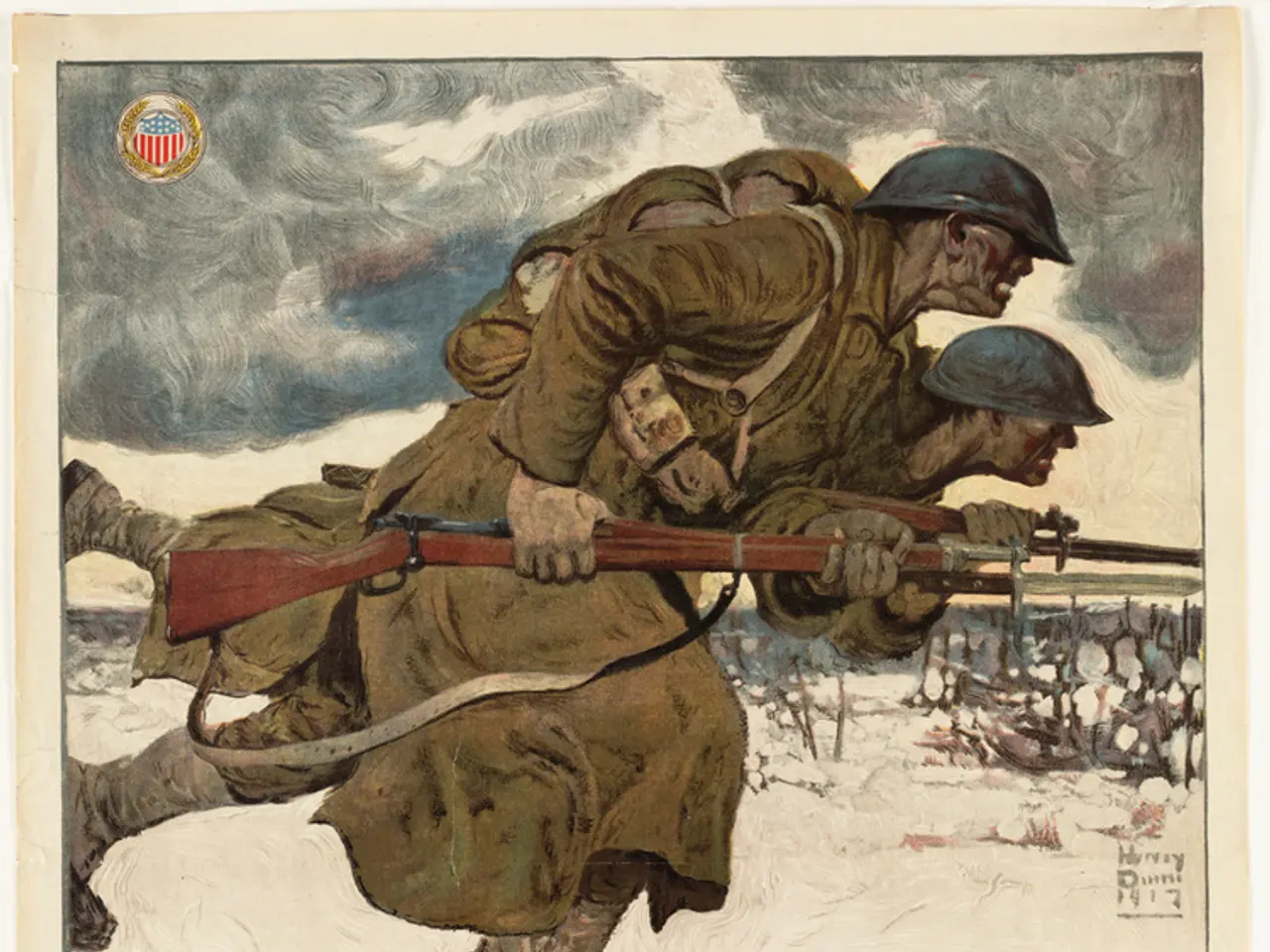Reimagining the Function of the Arms Manufacturing Sector
In a significant turn of events, political communication in Germany is now viewed as a strategic tool for stability, legitimacy, and trust, as the country faces a new leadership challenge within the EU and towards partner countries. The geopolitical threat situation is growing, and the need for security has never been more pressing.
The German arms industry, traditionally a key supplier of military hardware, is now expected to play a more significant role. This new role extends beyond just supplying advanced military platforms, such as fighter jets like the F-35 and Eurofighter, submarines like the U-212CD, and armored vehicles like the Boxer and Patria. The industry is also expected to act as a driving force behind an industrial transformation, emphasizing innovation and strategic autonomy.
This transformation includes suppliers pivoting to military-grade materials and manufacturing, such as Salzgitter AG and Dillinger Hüttenwerke producing military-grade steel, and Volkswagen repurposing facilities for tank production. The industry is expected to contribute to modernization efforts that accelerate investment in next-generation technology, equipment, and infrastructure, aligned strategically with NATO and EU priorities.
The new expectations and responsibilities for the German arms industry are part of a larger shift in security policy connected to the 2025 federal election. The government's 2025 defense budget is €62 billion, a significant expansion and modernization effort, and part of a larger €500 billion infrastructure and climate neutrality plan. This shift marks a break from post-war fiscal restraint.
In this new role, the arms industry is required to communicate its contribution to the protection of democracy and population more openly. This mandate must be communicated responsibly and anchored in society. Town hall discussions, social media dialogues, and partnerships with science and civil society are needed for participation.
The goal of the new government is to create Europe's strongest army, modern, deployable, and future-proof. To achieve this, dilapidated structures will be renovated, procurement and digitization will be accelerated, and arms cooperation will be strategically expanded. Companies in the arms industry should provide insights into their production and decision-making processes, and show their ethical standards, dealings with sensitive technologies, and own boundaries.
Processes, decisions, and conflicts of interest must be traceable, well-founded, and openly named for a societal mandate to emerge. Leaders should take communicative responsibility proactively, not as a reaction to criticism. The government must bring defense policy out of the niche where it has been politically tolerated but socially marginalized for years.
Trust is a prerequisite for a societal mandate for defensibility. Political language is part of defense in a time when deterrence is again part of reality. The new German coalition, led by Chancellor Friedrich Merz, has prioritized defense capability as a state responsibility. Ministries must anchor security policy in a shared understanding of values, even in cooperation with industry, civil society, and international partners.
The transatlantic partnership is becoming more fragile, while military capabilities, resilience, and deterrence are moving to the center of political debates. The new government has given the arms industry a clear political mandate: more investments, faster processes, clear prioritization. The NATO 2-percent target is to be permanently secured in the federal budget, along with a billion package for Ukraine, reform of the debt brake, and additional funds for the Bundeswehr.
This mandate must be communicated responsibly and anchored in society. Companies in the arms industry must live up to the responsibility now placed upon them, with stance, transparency, and the will to co-shape. The federal government must deliver on security policy more quickly, credibly, and transparently. In this new era, the arms industry is not just a supplier, but a strategic partner of the democratic community.
- In this new era, the German arms industry, beyond supplying advanced military platforms, is now viewed as a strategic partner for political communication in promoting the protection of democracy and population, emphasizing transparency, ethical standards, and co-shaping with society.
- The new coalitional government, led by Chancellor Friedrich Merz, has prioritized a strengthened arms industry for strategic partnership, investing more, accelerating processes, and clearly prioritizing defense capabilities, with a focus on communicating its role responsibly and anchoring it in society.








